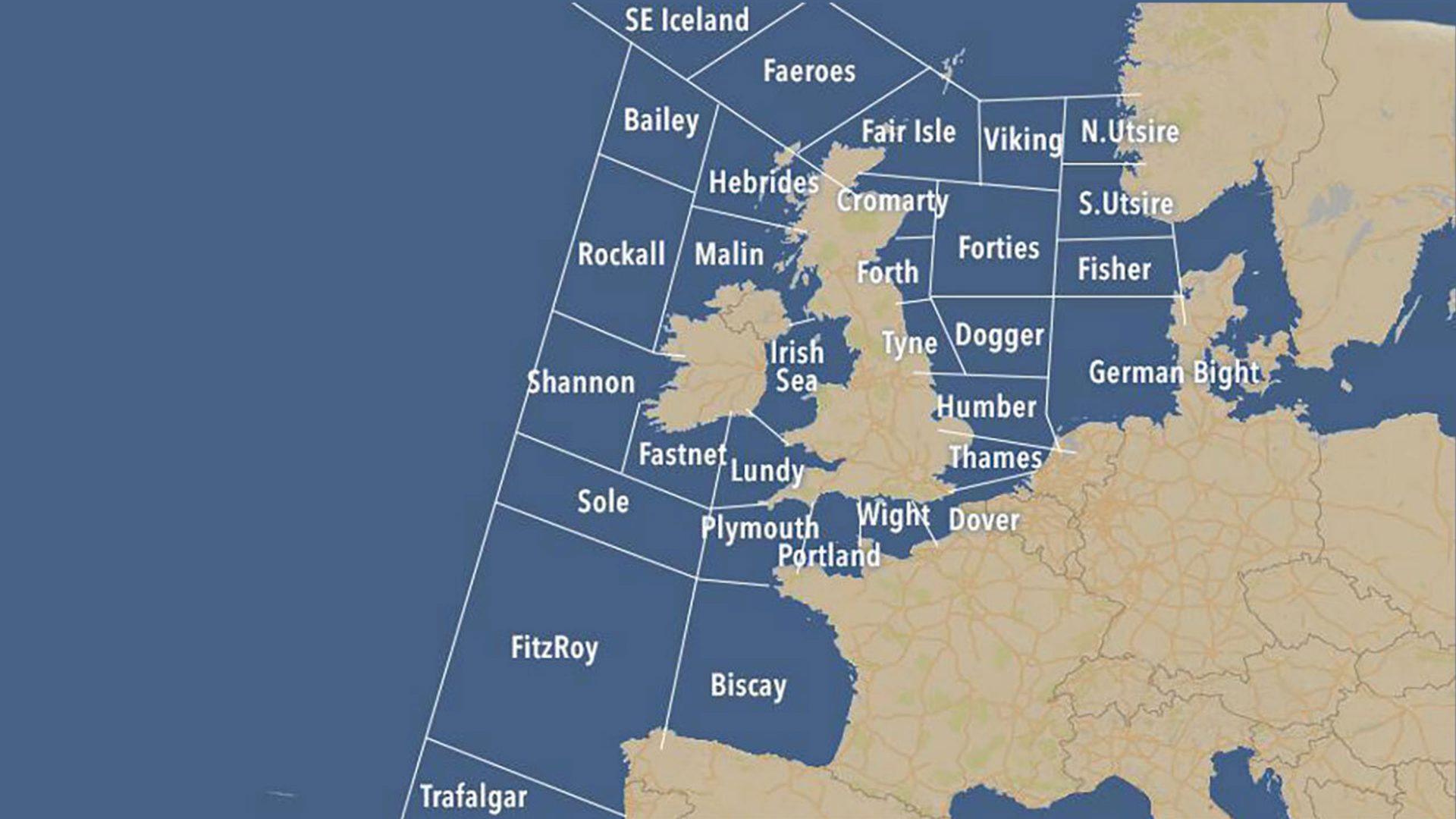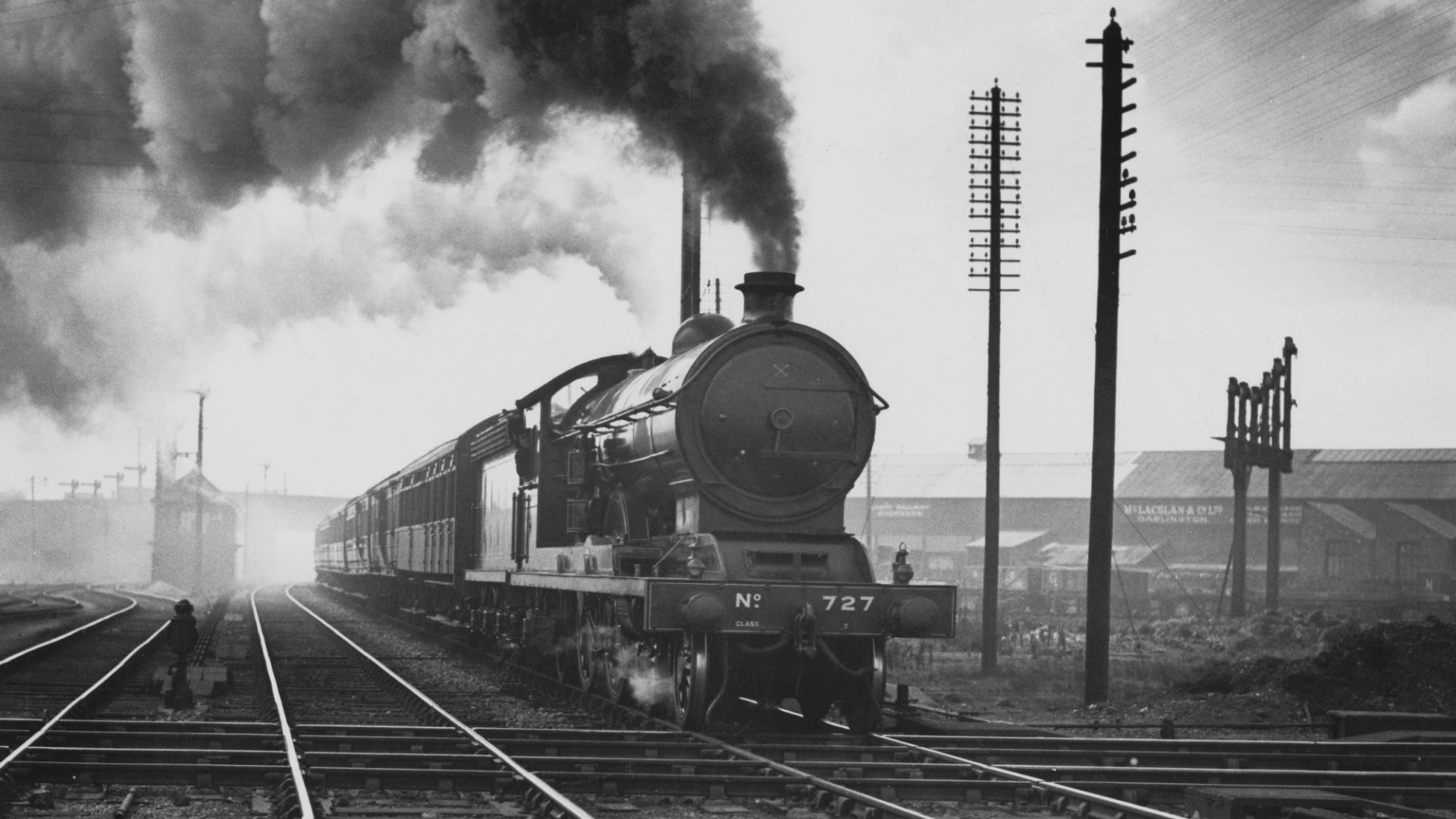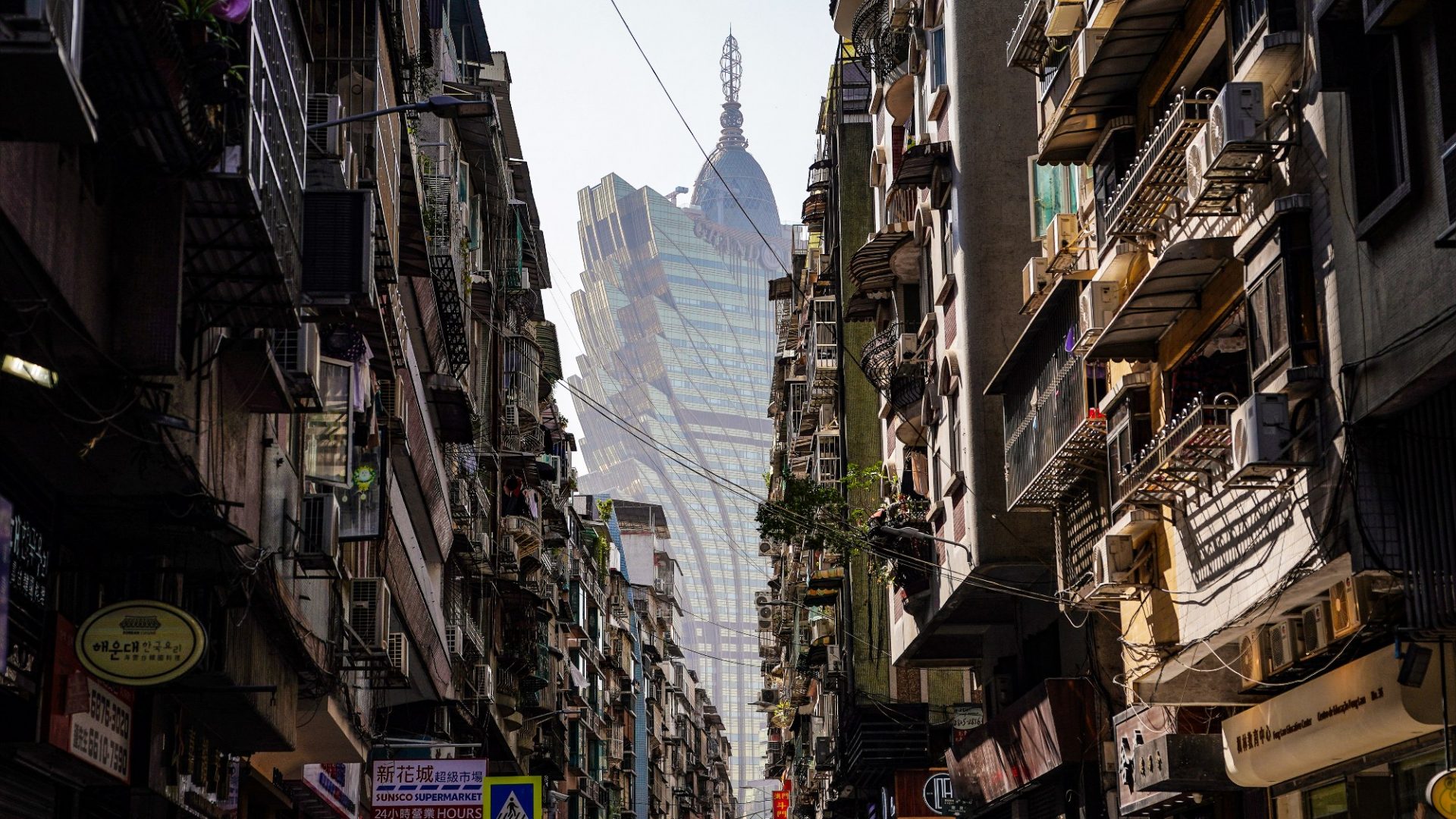
This summer, the family came over from northern California. Being the long absent aunt who has lived in Asia for the past 25 years, I was eager to impress my two nephews, who are both in their early 20s. I wanted them to take an interest in a region where their ancestors had come from. I wanted them to learn about their culture and their heritage.
The first nephew was easier to please. He had already been to China and had liked it. The second nephew was more challenging. “I live in a place with perfect weather,” he declared soon after arriving from California. He didn’t seem too keen on the 90 degrees Fahrenheit, shirt-soaking humidity of a Hong Kong July.
Although Hong Kong has plenty of tourist attractions, to really impress my guests, I thought I’d take them to the former Portuguese colony of Macau, even though a typhoon was forecast. But then it was just an hour-long ferry ride away, and the atmosphere over there is completely different.
My hope was that they would be dazzled by the bright lights and glamour of the casinos, from the Venetian with its manmade indoor river and gondolas, to Studio City’s ferris wheel, and the Londoner’s grand facade, which is a replica of the Houses of Parliament. And unlike its rival Las Vegas, there is also culture, including the Portuguese architecture and the unique cuisine of the Macanese people, who are of Portuguese and Chinese descent.
When you step off the ferry in Macau, it is immediately clear that you’re not in Hong Kong any more. It is much quieter and the pace of life is much slower – we actually had to wait a while for a taxi. The drive from the ferry pier to Coloane, the quiet part of Macau where I always stay, gave the visitors a glimpse of the casino culture that defined this city even before it returned to Chinese sovereignty in 1999, and has become even more synonymous with Macau since then.
When it took over, Beijing ended the decades-long casino monopoly that existed in the city, and it managed to attract major overseas operators such as Wynn and Sands. The intention was to transform Macau into the entertainment capital of Asia – the Vegas of the East.
We went past the Parisian, with its giant bright pink replica of the Eiffel Tower, and then the Londoner, which not only has the facade of the Palace of Westminster, but also a lifesized Big Ben. The older but still iconic, gold-coloured Grand Lisboa casino, shaped like the opening petals of a lotus, was also visible in the distance.
Perhaps unfortunately, my entourage had no interest in gambling, but they were still wowed by the Venetian’s dome-like, golden decorated interior and my brother-in-law posed for a picture in one of the red British telephone booths at the Londoner. I was also hopeful there would be plenty of attractions to keep them entertained that did not involve gambling.
The city authorities have been encouraging the casinos to boost their investments in non-gaming attractions for some time now. The 10-year gaming licenses of the six casino concessionaires came up for renewal in 2023, and it was made known at the time that the city wanted to move away from its heavy reliance on gaming revenue, the bulk of which is Chinese capital from across the border in mainland China.
Beijing wanted Macau to become Asia’s Las Vegas, and had hoped to match the formula of the US gambling hub, where 70% of all casino revenues are from non-gaming activity, and 30% from gambling. Twenty-six years after its handover to Chinese sovereignty, however, Macau still leans much more heavily on the gambling. Some of the casino revenues here are 95% reliant on gaming, according to Ben Lee, a gaming analyst at IGamiX, a Macau-based consultancy.
He also pointed out that three years after Macau’s gaming licences were renewed, “there is as yet no significant capital expenditure in non-gaming.”
What there is, he explained, is a list of unfulfilled promises: a new hotel and conservatory promised by one casino; an arts and culture centre promised by another, an indoor theme park – none of these were ever built.
When it comes to revenue, “they all know non-gaming is not going to replace gaming,” said Lee. “They’re trying to do as little as possible for as long as they can.”
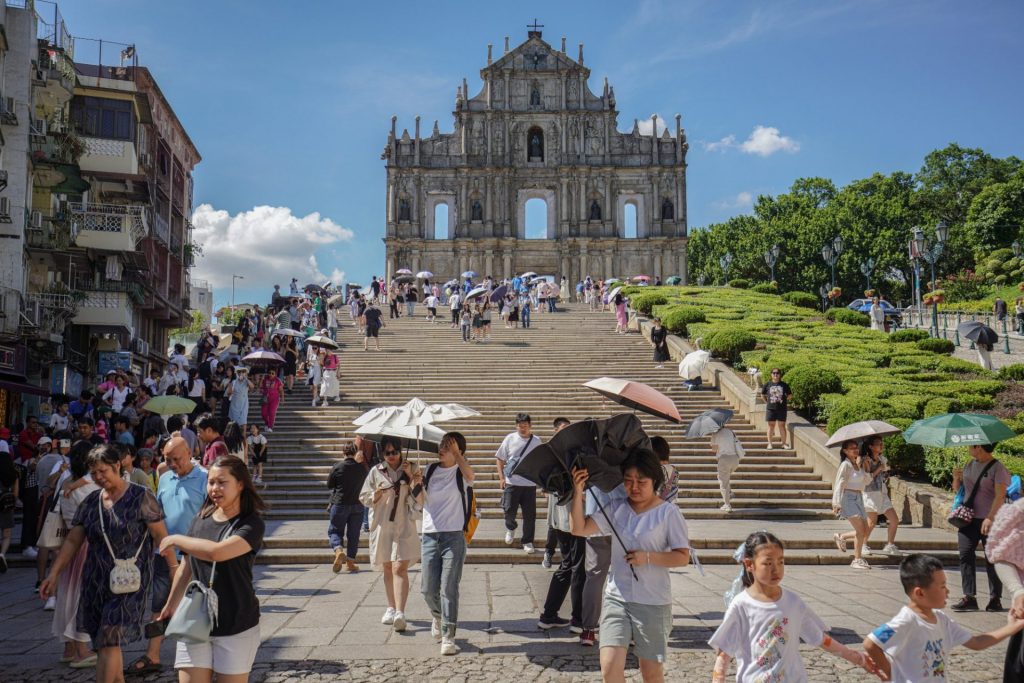
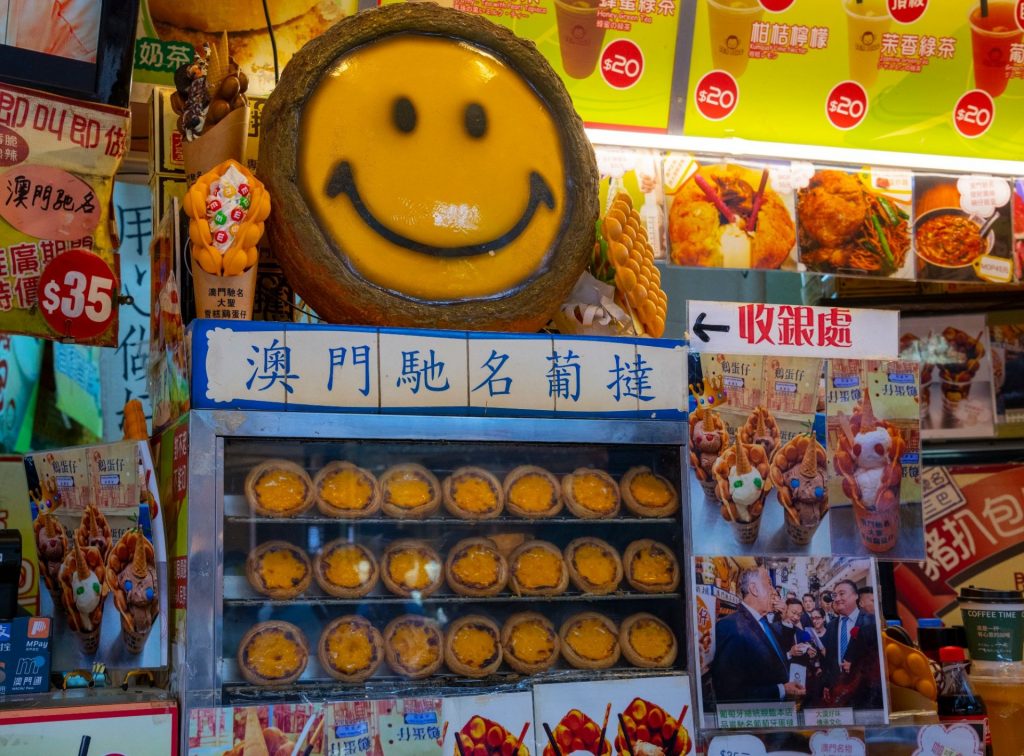
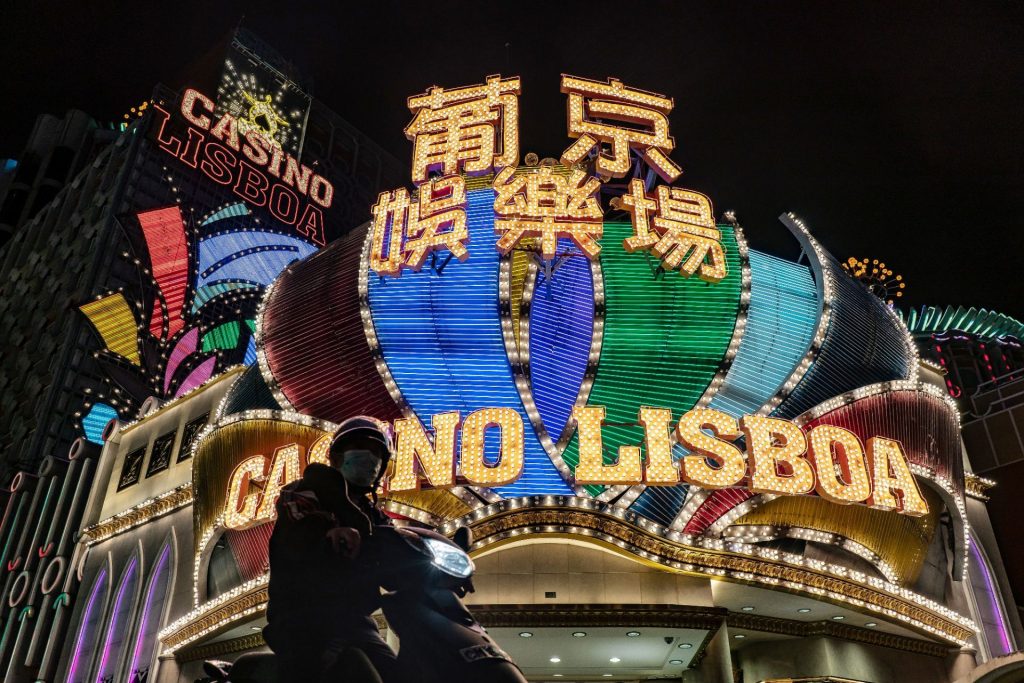
I was disappointed to find that Ben’s assessment was correct. There were more attractions than before, including a water park and a huge new wave pool, and even a zipline. But unless you are willing to fork out more than $50 per person for a water park ticket, stay in an expensive hotel to gain complimentary access to the pool, or if you happen to have a fear of heights, as I do, then the family options are limited. The only concert scheduled for that weekend was a Cantonese singer, albeit a famous one, but my nephews and brother-in-law don’t speak Cantonese, and weren’t that interested.
We did find some affordable options. The movie tickets at Studio City cost $10, and $7 would get you five minutes of a VR experience. The ferris wheel was even cheaper than that, but unfortunately it was closed due to the approaching typhoon, even though the storm was still hours away and there was barely any wind.
What saved the trip was Macau itself. It’s so different from Hong Kong. There are cobblestone streets without cars, Portuguese architecture, street lamps and tiles and a laid-back atmosphere where lounging on a bench at a church plaza, or by the waterfront, is a perfectly acceptable way to pass the hours – it’s a way of life.
And there’s the food. The ruined facade of the 17th-century church of Saint Paul has become the best-known landmark of Macau, and as we walked around the vendors practically stuffed free samples of delicious pepper or honey-flavoured beef and pork jerky in our hands. Portuguese egg tarts fresh out of the oven melted in our mouths.
The next day the typhoon finally came. We stayed in our Portuguese hotel looking out from the balcony windows at what turned out to be an unusually mild typhoon, blowing through the trees by the beach. For dinner, we enjoyed traditional Portuguese dishes such as polvo à lagareiro, roasted octopus drizzled with olive oil, and arroz de pato, a duck rice dish, all of it much more affordable than any western food you could find in Hong Kong.
Other than the Portuguese and Macanese food, Macau is unique because of its people. But their cultural identity is at risk of fading, and people like Miguel Senna Fernandes, president of the Macanese Association, complain that little is being done to help.
With only around 2% of the population being full or mixed Portuguese, and the recent end to preferential visa policies for Portuguese nationals wanting to settle in Macau, there are worries that the city’s unique identity will soon only be seen in its food, architecture and museums.
Suggested Reading
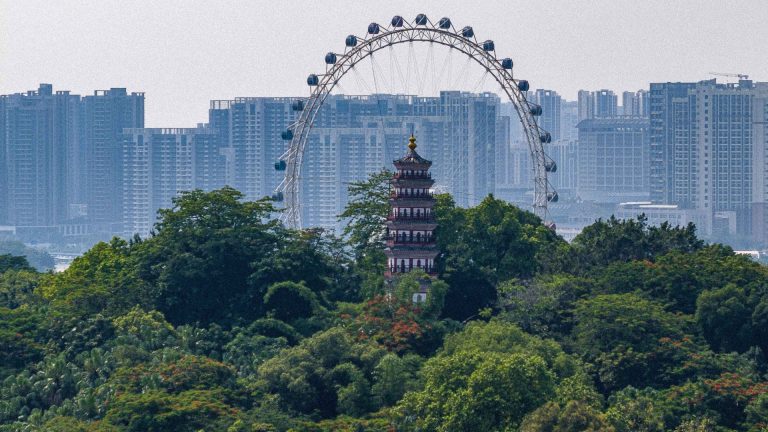
Leaving California for Zhongshan
The 2023 licensing requirement for casinos to promote local culture has amounted to little. “We saw some things,” said Senna Fernandes. “Some shows, big events, it’s money, it’s all about money… what they’re doing, does it have anything to do with Macau local culture, cultural identity? I have some doubts about it.” The city he grew up in feels different, he says. A wave of Portuguese people departed during Covid, due to tight border restrictions and quarantine requirements.
Expecting casinos to promote or preserve local culture might seem like a big ask; after all, their sole purpose is to make money. But they are the biggest employers in town and therefore have a role to play in helping the smaller businesses that depend on Macanese customers. Some businesses catering to them have closed, including the Caravela, a cafe in downtown Macau, where Portuguese used to gather every day, sometimes hanging out with an espresso the whole afternoon. And Club Militar, a place where officers used to dine, now has fewer Portuguese customers.
“In the old days, you saw a lot of Portuguese there, now, fewer and fewer. You can really measure the shrinking of a community,” Senna Fernandes said.
What also worries him is the lacklustre local economy. While tourist arrivals have recovered to almost peak levels of 39 million per year, the tourists, who are mostly from mainland China, are spending less and preferring to stay at cheaper hotels across the border, while locals flock there on weekends to enjoy lower prices, including for recharging their electric cars.
Macau is changing, but it is not in decline. It continues to draw in a colossal number of visitors for a city of only 700,000 people.
As for my trip, the Californians agreed that despite the typhoon and lack of affordable family entertainment, it was well worth it. They went away knowing that, just across the water in Macau there is a small zone among the casinos where a culture of southern European calm persists. For now, at least.
Cindy Sui is a journalist based in Hong Kong

